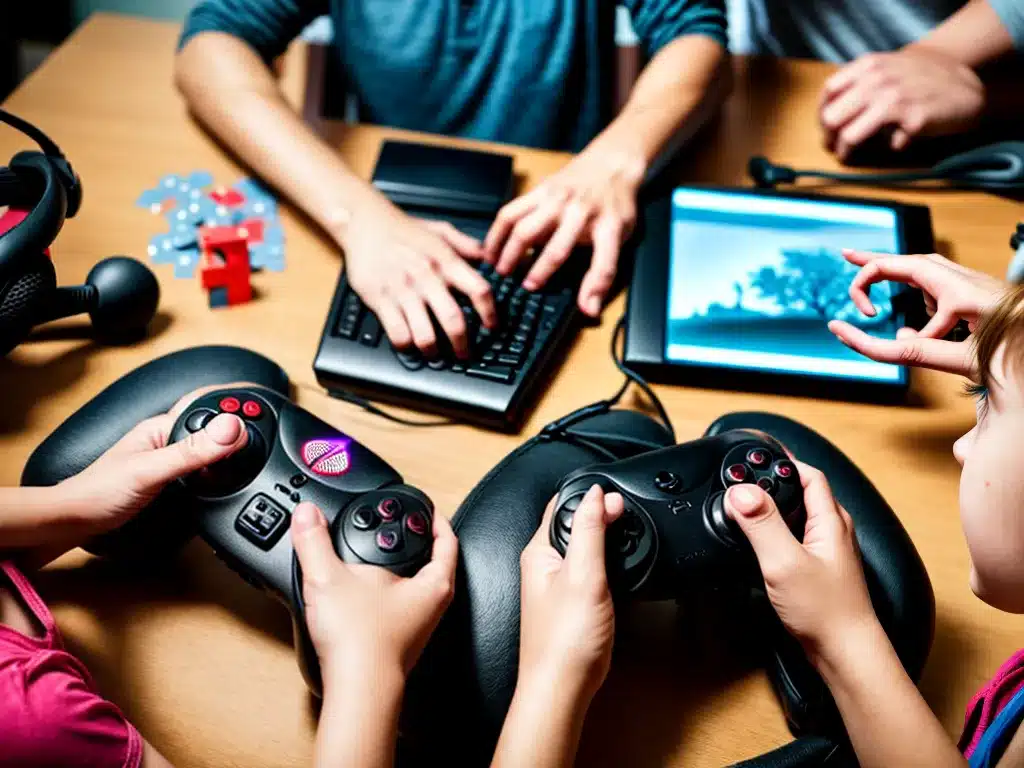
Gaming gets a bad rap as an unproductive pastime, but research shows it actually helps develop cognitive skills that are crucial in today’s world. As someone who has gamed extensively, I have experienced firsthand how it builds critical thinking and creativity. Here’s an in-depth look at how gaming develops key competencies:
Building Problem-Solving Abilities
Gaming constantly presents novel problems to solve. This trains the brain to adapt to new situations and think flexibly.
Trial-and-Error
Games encourage experimentation through trial-and-error. For example, puzzle games often let you test out combinations to see what works. This iterative approach teaches systemic thinking – understanding how different parts interact as a whole.
Analyzing Patterns
Good games gradually increase difficulty by adding new mechanics. To progress, players must analyze patterns in enemy behaviors or level designs. Recognizing these patterns improves inductive reasoning.
Evaluating Options
Games present complex decision spaces with many viable options. Choosing what equipment to buy in an RPG involves evaluating strengths and weaknesses of each item. This fosters calculated thinking and resource optimization.
Creative Experimentation
Sandbox games like Minecraft promote unstructured play. With so many possibilities, players must get creative in how they approach problems. This flexibility trains out-of-the-box thinking.
Promoting Critical Thinking
Gaming involves making many strategic decisions under uncertain conditions. This builds critical thinking proficiencies.
Assessing Credibility
Games never give you all the information upfront. Players must consider reliability of sources when dealing with strangers or evaluating loot. This helps develop healthy skepticism.
Weighing Trade-Offs
Most choices in games require trade-offs. Deciding which skills to invest in or whether to fight or flee involves weighing pros and cons. This nudges more judicious thinking.
Testing Hypotheses
Good gamers constantly hypothesize to guide their actions. Is that sound coming from a loot chest or an enemy? Is this the best gear or should I keep looking? Verifying these hypotheses through experiments sharpens deductive logic.
Avoiding Bias
It’s easy to get biased while gaming by early successes or frustrations. But letting emotions override evidence leads to poor decisions. Over time, players learn to check their biases.
Promoting Other Cognitive Benefits
Beyond problem-solving and critical thinking, gaming improves a variety of mental capacities.
Multitasking
Handling multiple objectives simultaneously is integral to most games. Racing games require driving skill while paying attention to routes and other cars. RTS games involve economy management, exploration, and combat. Juggling all this builds mental coordination.
Quick Thinking
Games emphasize thinking and reacting quickly. Titles like Bullet Hell shooters challenge fast cognitive processing under pressure. This helps strengthen fluid intelligence – the ability to process information rapidly.
Memory Strengthening
Many games reward remembering details and recalling knowledge. Adventure games require remembering clues, while FPS games reward recognizing enemy patterns. The constant memorization keeps the brain sharp.
Situational Awareness
Good gamers maintain high situational awareness. Keeping track of resources, opponent positions, terrain details, and other environmental factors improves perceptiveness.
Through repetition and escalating challenges, games train the brain to handle complex problems. So while gaming has downsides if done excessively, in moderation it can provide solid cognitive benefits. The skills developed can help in academics, careers, and real-world problem solving.












